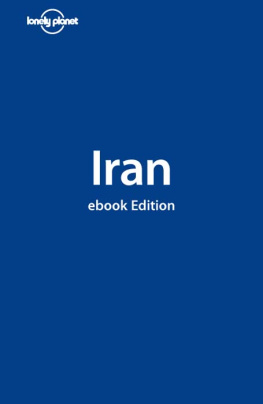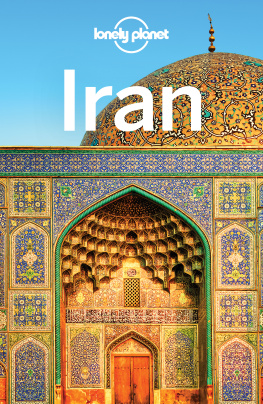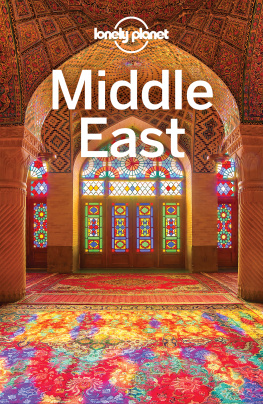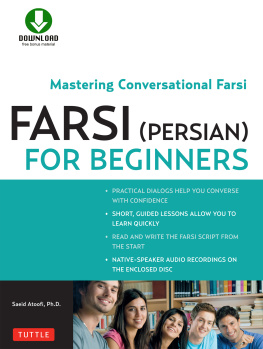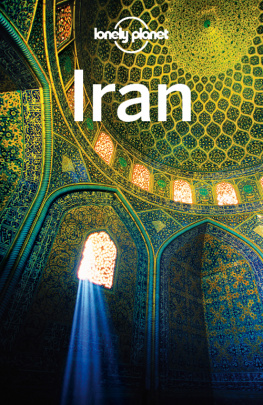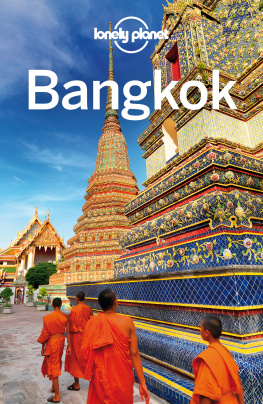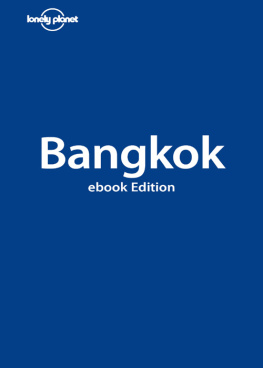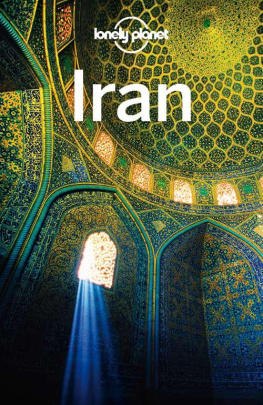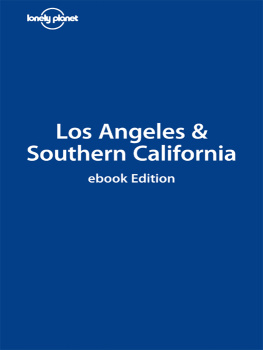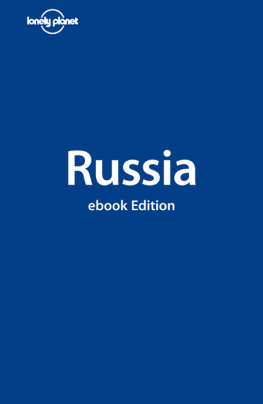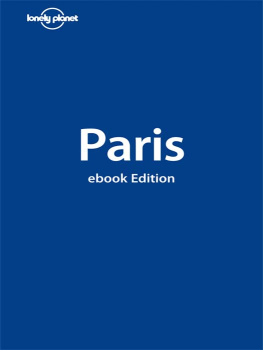Getting Started
WHEN TO GO
When deciding when to go to Iran you must first work out where youd like to go. Temperatures can vary wildly: when its 5C in Tabriz it might be 35C in Bandar Abbas, but for most people spring and autumn are the most pleasant times to visit. At other times, the seasons have advantages and disadvantages depending on where you are. For example, the most agreeable time to visit the Persian Gulf coast is during winter, when the humidity is low and temperatures mainly in the 20s. At this time, however, the more elevated northwest and northeast can be freezing, with mountain roads impassable due to snow. Except on the Persian Gulf coast, winter nights can be bitterly cold, but we think the days (often clear and about 15C in much of the country) are more pleasant than the summer heat.
DONT LEAVE HOME WITHOUTREADING THIS FIRST
The best preparation for visiting Iran is to read as much of the front and back chapters in this guide as you can. If you cant read everything, at least read the following:
- How do I get a visa and how long can I stay?
- Credit cards and travellers cheques dont work. Bring cash.
- This money is confusing. Rials or toman?
- Prices will be higher than what we have in this book; .
- How do Iranians think? Read about the National Psyche, .
- Is he really giving me that for free? See the boxed text Taarof .
- As a woman, what should I wear?
- Books to take with you (see Reading Up, ).
There is not much you cant buy in Tehran or the other big cities, though the selection can be limited. Things you should consider bringing:
- Sunscreen and a hat
- A head-lamp
- A short-wave radio
- A universal plug
- A small stash of toilet paper (to be replenished throughout the trip)
- A phrasebook and pictures of your family to better communicate with your new Iranian friends
- A couple of decent books to soak up the free hours at night and on transport (but nothing with pictures of scantily clad women on the cover)
- Earplugs for when youve finished reading and want to sleep, or if youd prefer to sleep than watch that Bollywood flick on the overnight bus
- Tampons: theyre hard to find, so if you use them its worth bringing enough to last the trip
Theres just one more important thing: try, as much as possible, to leave your preconceptions at home.
And when we say heat, we mean it. Between May and October temperatures often rise into the 40s, and in the deserts, southern provinces ), summer can be particularly trying.
Seasons & Holidays
Iran has two main seasons. High season begins with the mass national movement accompanying , the Iranian New Year holiday that begins on March 21 and runs for two weeks. During this period cities such as Esfahan, Shiraz and Yazd are packed. Hotels in these cities and resort destinations, such as Kish Island, charge their rack rates, and finding a room can be harder than finding a stiff drink in Qom. But its a great time to be in Tehran, which is virtually empty.
No Ruz also marks the annual government-mandated price rise in hotels, usually about 20%, and in most of the country a change in opening hours. For the sake of clarity, in this book when you see summer opening hours it refers to the period from March 21 to mid-October. Mid-October until mid-March is low season (referred to as winter in this book) in most of Iran, and brings shorter opening hours at sights and hotel prices about 10% to 20% lower, or much more in holiday destinations.
Some travellers prefer not to visit Iran during , the Muslim month of fasting, when many restaurants close between dawn and dusk, and tempers can be strained. However, most people (including us) think travelling during Ramazan isnt as tough as reputation would have it: restaurants in hotels and bus terminals still operate and while buses might be less frequent, Ramazan is the least-crowded time on trains and planes.
COSTS & MONEY
Its not quite Zimbabwe, but inflation is running at about 25% in Iran, so expect just about every price in this book to rise repeatedly in the coming years (for details, ). Inflation or no inflation, Iran remains an eminently affordable place to travel and great value by Western standards.
Backpackers can get by on as little as IR150,000 to IR200,000 (US$16 to US$22) a day, even less if all luxuries are foregone. To do this, however, surviving is the operative word; you need to stay in basic lodgings, such as a dorm or basic hotel, known as a mosaferkhaneh (, from about IR50,000/US$5.50), eat the simplest food in local restaurants (preferably only twice a day) and take the cheapest, slowest transport.
If youre not a complete ascetic youll be looking at about IR250,000 to IR400,000 (US$27 to US$43) a day. This will usually be enough for budget or simple midrange accommodation (with a bathroom), one good cooked meal a day, transport by Volvo buses (see the , chartered taxis around town (and sometimes in the countryside) and visits to all the important tourist attractions.
For about IR400,000 to IR500,000 (US$43 to US$54) a day you could take a couple of internal flights, eat at restaurants serving exotic Western fare, and lodge in midrange hotels with Western toilets and satellite TV.
THE END OF DUAL-PRICING IN HOTELS?
As this book went to press, Iran was in the midst of a fight about the future of dual pricing in hotels where foreigners pay significantly more for hotel rooms than Iranians do. Dual pricing has been in force for years, but in early 2008 the government tourism organisation ordered all hotels to use one rate for everyone. For full details, .
If you prefer upper midrange or top-end hotels youll be looking at somewhere more than IR700,000 (US$76) a day. Single and twin/double rooms cost virtually the same, so couples should expect to pay considerably less than double the figures quoted here.
Getting around Iran is cheap; comfortable buses work out at less than IR9200 (US$1) per 100km, while a bed on an overnight train starts at IR92,000 (US$10). Domestic flights are no longer as ridiculously cheap as they were, but you can still fly from Tehran to Esfahan, for example, for only IR245,000 (US$27).
In 2004 the government ended dual-pricing at museums and historical sites, so admission fees wont hurt too much either between about IR1500 and IR6000 for most places.
Remember that travellers cheques and credit cards dont work in Iran, so bring all the money youll need in cash ().
HOW MUCH?
Meal in a cheap restaurant IR20,000
One hour online IR10,000
Short taxi ride IR6000-10,000
Average museum ticket IR4000
Two-pack of toilet paper IR700
READING UP
Travellers have been writing about Iran for millennia so there are plenty of evocative travelogues worth hunting down. And while English-language fiction is scarce, Iran has been the subject of dozens of political and historical books in recent years. For books by Iranian writers, .
Most of these books are not available or are banned in Iran, but bringing them or any other book into the country shouldnt be a problem. Notable exceptions are Not Without My Daughter, which is despised by most Iranians, or anything by Salman Rushdie. For more on customs restrictions, .
Travel Literature
In the Land of the Ayatollahs Tupac Shapur is King: Reflections from Iran and the Arab World, by Shahzad Aziz, combines travelogue and humour in its often insightful observations of the modern Middle East.

